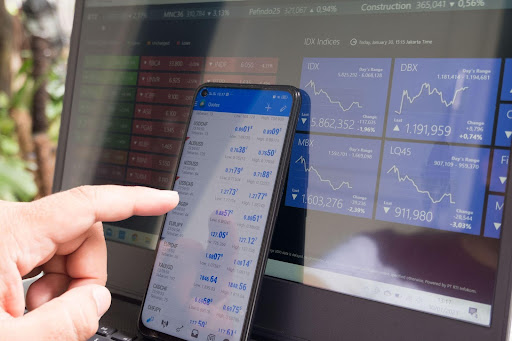Forex
How Forex Trading Works in Nigeria: A Beginner’s Guide

Forex trading, also known as foreign exchange or FX trading, has gained significant popularity in Nigeria over the years. It offers individuals an opportunity to profit from fluctuations in currency values, making it one of the most lucrative financial markets in the world. This beginner’s guide provides a comprehensive overview of how forex trading works in Nigeria, covering everything from the basics to advanced insights.
What is Forex Trading?
Forex trading involves the buying and selling of currencies to make a profit. Traders exchange one currency for another with the aim of benefiting from price changes in the forex market. For example, if you anticipate that the US Dollar (USD) will strengthen against the Naira (NGN), you might buy USD and sell NGN, then sell the USD later at a higher rate to earn a profit.
How Forex Trading Works
Forex trading occurs in pairs, where one currency is exchanged for another. Popular currency pairs include:
- Major Pairs: EUR/USD, GBP/USD, USD/JPY.
- Minor Pairs: EUR/GBP, AUD/NZD.
- Exotic Pairs: USD/NGN, EUR/TRY.
Trading is conducted in the forex market, which operates 24 hours a day, five days a week. The market is decentralized, meaning it has no physical location, and trading occurs electronically through brokers.
How to Start Forex Trading in Nigeria
1. Learn the Basics
Before diving in, educate yourself on forex trading concepts like:
- Currency pairs
- Pips and lot sizes
- Leverage and margin
- Technical and fundamental analysis
Free resources like Investopedia and forex blogs on Investors King can help you get started.
2. Choose a Reliable Forex Broker
Select a broker that is regulated and offers competitive spreads, good leverage, and an intuitive trading platform. Popular forex brokers in Nigeria include:
Ensure your chosen broker is registered with a reputable regulatory body like the Financial Conduct Authority (FCA) or the Cyprus Securities and Exchange Commission (CySEC).
3. Open a Trading Account
Most brokers offer different types of accounts, such as:
- Demo Accounts: For practice without financial risk.
- Standard Accounts: For real trading with moderate capital.
- ECN Accounts: For advanced traders seeking direct market access.
4. Fund Your Account
Deposit funds into your trading account using payment methods like:
- Bank transfers
- Debit/credit cards
- E-wallets like Skrill and Neteller
5. Download a Trading Platform
Forex brokers provide trading platforms like MetaTrader 4 (MT4) or MetaTrader 5 (MT5), which allow you to execute trades, analyze charts, and manage your portfolio.
6. Start Trading
Once your account is set up, you can begin trading by:
- Analyzing the market
- Placing orders (buy or sell)
- Monitoring trades to ensure profitability
Key Forex Trading Terms to Know
- Leverage: Allows you to trade larger amounts with minimal capital. Example: A leverage of 1:100 means you control $100 for every $1 in your account.
- Pips: The smallest price movement in a currency pair. For example, in USD/NGN, a move from 760.00 to 760.50 is 50 pips.
- Spread: The difference between the bid (selling) and ask (buying) price of a currency pair.
- Stop Loss: A tool to minimize losses by automatically closing a trade at a predetermined level.
Risks of Forex Trading
Forex trading comes with inherent risks, such as:
- High Volatility: Currency values can change rapidly.
- Leverage Risk: While leverage can amplify profits, it can also magnify losses.
- Market Unpredictability: News, economic events, and geopolitical factors can impact currency prices.
It’s essential to use risk management strategies like stop-loss orders and proper position sizing.
Is Forex Trading Legal in Nigeria?
Yes, forex trading is legal in Nigeria. However, traders must ensure they work with regulated brokers and avoid unlicensed entities. The Central Bank of Nigeria (CBN) and the Securities and Exchange Commission (SEC) regulate financial activities related to forex.
Tips for Successful Forex Trading
- Start Small: Begin with a demo account or a small live account.
- Develop a Trading Plan: Set clear goals, risk limits, and strategies.
- Stay Updated: Follow economic news and market analysis.
- Use Technical and Fundamental Analysis: Combine chart patterns with economic data for better insights.
Resources for Nigerian Forex Traders
- Investors King: Market analysis and trading tips.
- TradingView: Charting and analysis tools.
- MyFXBook: Trade tracking and performance metrics.
- Bloomberg: Financial news and insights.
Conclusion
Forex trading in Nigeria offers immense opportunities for profit, but it also requires careful planning, continuous learning, and disciplined execution. By following this guide, you can set yourself up for success in the world of forex trading.
For more insights on forex and investment opportunities in Nigeria, stay updated with Investors King.